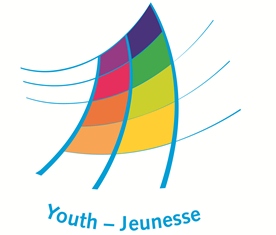Statement by Ivan HROMADA, Chair of the Joint Council on Youth (CMJ) and of the European Steering Committee for Youth (CDEJ)

At the current time, we are experiencing another type of change. We are staying at home, teleworking and trying to cope with this unprecedented and extraordinary situation. For most of us, these are very challenging times indeed. We are experiencing something that none of us could have imagined a few weeks ago. We are changing our way of life, getting used to extensive restrictions. Our streets and cities fell silent in order to focus on what currently is essential – reducing the risk of transmission of the virus and helping those who are most in need.
We are all connected in solidarity, yet we are not all equal in the risk of falling ill, just as not everyone enjoys the same protection and support. The current crisis teaches us that the health and well-being of others also affect our own good, we also witness that access to rights and services is hindered for many, young people included. This silence, that has been given to us unexpectedly, helps us to rediscover what is really essential in life and what is just an illusion. The coming spring brings hope that, despite everything, we can find a way to continue in our work and our lives.
Youth policy is being heavily affected by this crisis. Youth work, youth mobility, participation and non-formal education, in particular, need direct people-to-people contact and although many online activities are taking place, they cannot replace human encounters. Youth ministries and youth organisations in the 50 States Parties to the European Cultural Convention are trying to cope with these challenges. And the Joint Council on Youth (CMJ) is of course going to help them. The CMJ has established a working group on responses to COVID-19 that i.a. will map the effect of the crisis on young people and youth civil society, as well as showcase good practices that member states, youth organisations and young people have employed amid the crisis.
Moreover, I am very happy to see that the European Youth Foundation (EYF) has launched a special call for grant applications to support organisations that are trying to help vulnerable groups in their home countries. Even though youth organisations are experiencing hard times themselves, they do not just wait for the crisis to end. They do their best to allocate available human resources to help their communities.
As chair of the CMJ and CDEJ, I can say that the youth statutory bodies are pursuing their mission to provide for both intergovernmental dialogue and dialogue with young Europeans. Our unique co-management system continues to operate in these difficult times.
To finish, I hope this web page, which is dedicated to the youth sector’s response to the COVID‑19 crisis, will further stimulate this dialogue between different stakeholders and countries, and will become a platform for new ideas, inspiration, tools and the sharing of good practices. I encourage all member states and youth organisations to contribute to its development. Last but not least, I would like to express my support to all who currently devote time to identifying the most urgent needs of young people. Thanks to your efforts, we are able to offer them the most appropriate support.
Together we can do it!
Bratislava, 15 April 2020



